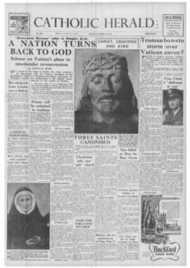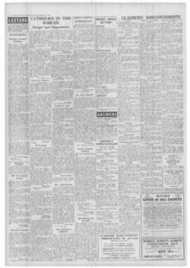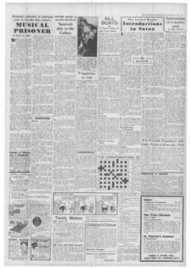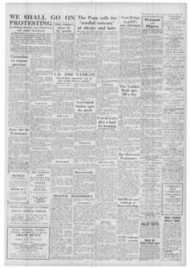Page 5, 26th October 1951
Page 5
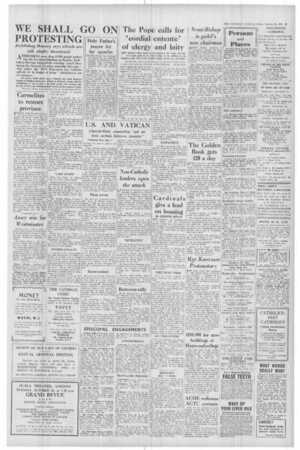
Report an error
Noticed an error on this page?If you've noticed an error in this article please click here to report it.
Tags
Share
Related articles
Vatican `leaving It To Him'
Us Set To Send
Publication Of Vatican-nazi Letters Reveals The Stand Of...
Stimulus For Hungary
Fury Grows Over Foreign Office 'insult' To The Catholic...
U.S. AND VATICAN
Church-State separation not an iron curtain between enemies'
(Continued from page 1) the Holy See and not create a uew departure.
These relations ceased to function only because the old Papal States crumbled before the onslaught of the " New Italy " between 1867-70.
In theory, the U.S.A. still has consular relationships with the
Vatican: they began in 1797, when
U.S. consulates were established in Rome and other cities, and merely went into abeyance when the Papal States disappeared.
In 1938 a Congressional amendment permitted the American Consulate in Rome to act as the authenticating agent for Vatican City documents so that they could be used as evidence in American courts of law, and the amendment looked forward to the time when the U.S.A. " shall have a consular representative in the State of Vatican City."
First envoy
The first U.S. diplomatic envoy, Mr. Jacob L. Martin, arrived in Rome in 1848 and was received by Pope Pius IX_ He held the rank of chargé d'affaires. Six years later his successor was given the status of minister-general.
The last envoy left Rome in 1867, Congress having declined to vote money for the retention of the mission.
President Roosevelt set no limits to the mission of Mr. Myron Taylor when he named him as his personal envoy-with the rank of ambassador -to the Vatican in 1939.
Mr. Myron Taylor, though his appointment was assailed constantly, is everywhere regarded as having made an unqualified success of his mission. An Episcopalian. he has shown publicly an unbounded admiration for thc present Holy Father and the aims of the Papacy.
The Holy See, however, has on several occasions made it clear that it regards the appointment of personal envoys of the Head of a State as less satisfactory than the appointment of a regular envoy if that State wishes to take advantage of having a representative at the Vatican.
Inconvenient
Moreover, it has been made plain that the arrival of an envoy for only a few weeks at a time, with an accumulation of questions to settle causes considerable inconvenience, since it involves a series of Papal audiences within a short period, to the exclusion of others who have business with the Papal Secretariat and also wish to see the Holy Father personally.
The separation of Church and State enacted by the Founding Fathers to protect religious bodies and individuals from official interference has been stretched and twisted to extraordinary lengths and shapes.
It was even invoked when efforts were being made to induce the New York Legislature to legalise Bingootherwise Houscy-Housey. This card game was elevated to a religious problem when it was pointed out that it was at that time a favourite game at charity functions in parish halls.
But during a recent case concerning Catholic schools in the New York State Court of Appeals. a judge stated that the " wall of separation" between Church and State is " a reasonable line of demarcation between friends" and must not he
converted into "an iron curtain between enemies."
blog comments powered by Disqus


